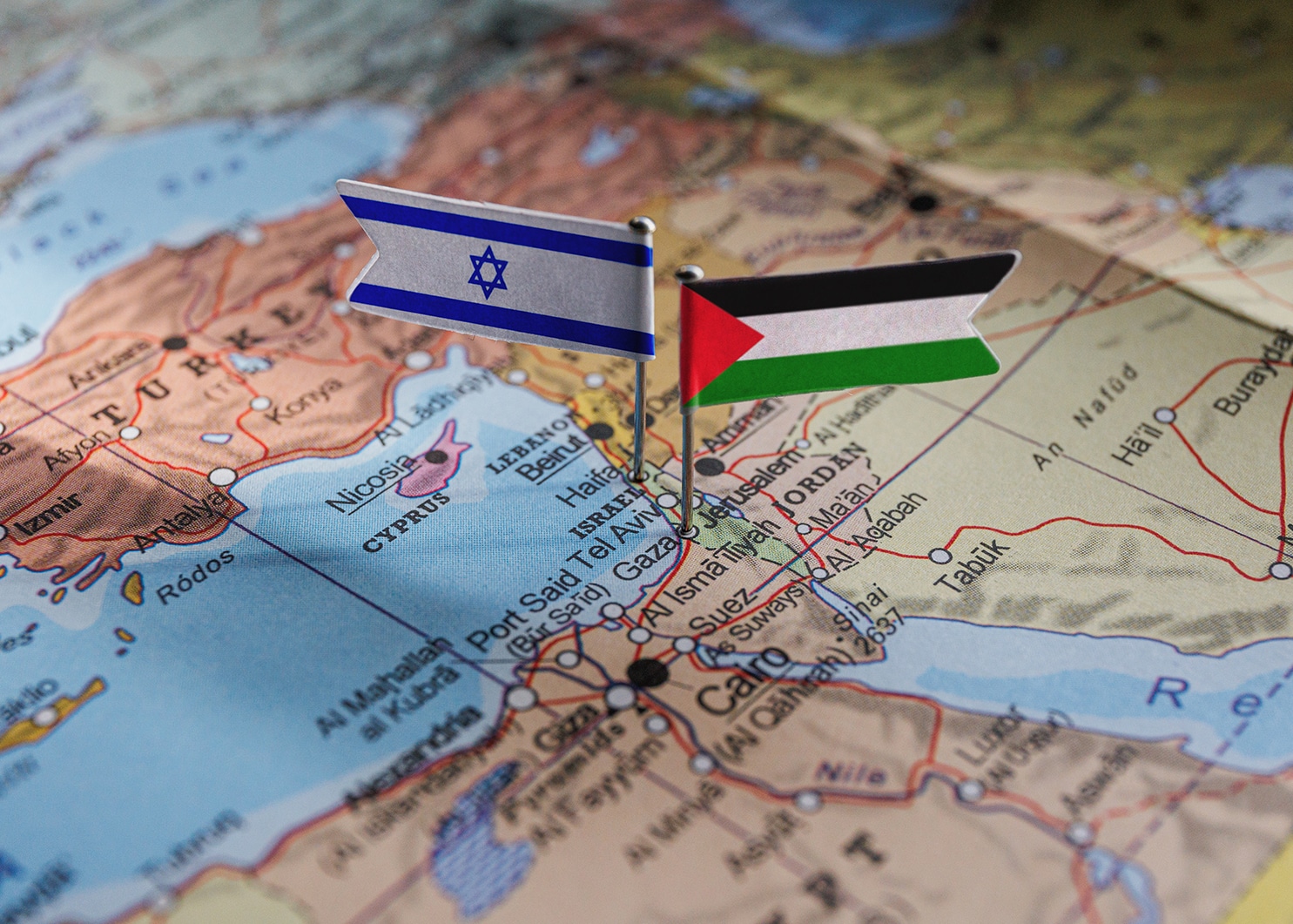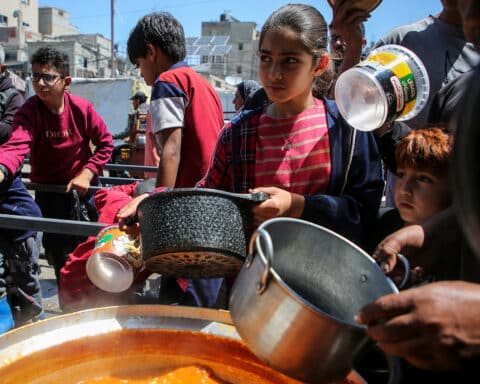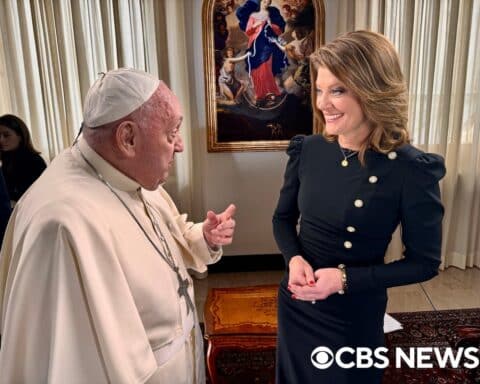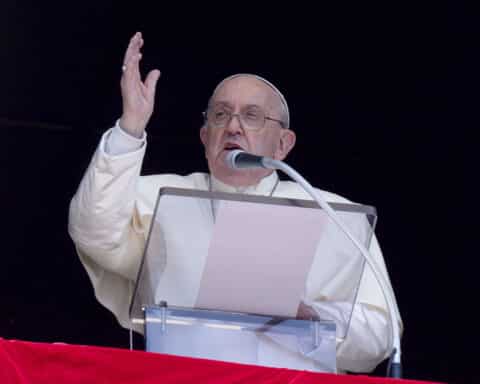This is as basic to Catholic Church teaching as it can be. Every human being is God’s unique, precious creation. When any human being is abused, mistreated or downgraded, bad things happen, always, inevitably, without exception.
Look at the ongoing violence in Gaza, a conflict between two people, both with legacies of being abused.
Israel and the Jewish people
On one side are the Jews of Israel. A few weeks ago, Jews around the world observed Passover, commemorating their ancestors’ flight, led by Moses, from slavery in Egypt.
The Exodus, as this flight is called, occurred millennia ago, but Jews remember it not only as important in its own circumstances but also as only one of the many persecutions, indeed terrors, which they have endured throughout history.
The greatest of all these terrors was the savage, diabolical attempt in Germany, under Adolf Hitler, between 1933 and 1945, literally to kill all Jews on earth.
Years have passed since those times in Germany, and not every Israeli citizen descends from someone who experienced Hitler’s persecution, but the Holocaust, as historians call it, revealed how intensely Jews could suffer, as a group, if evil had the upper hand. If anything, Israel exists as a sovereign nation to protect Jews from abuse and oppression. Securing Israel is a matter, for Jews, of survival.
Gaza and an Arab population
What about the Arabs, who comprise the majority in Gaza?
Overwhelmingly Muslim, they long were part of the Turkish empire, which controlled all the Middle East and North Africa. In World War I, Turkey was on the wrong side. When defeated, it lost its empire.
Palestine, as the entire area between the Jordan River and the Mediterranean Sea was called, between Lebanon and Egypt, was given to Britain to administer. Arabs were unhappy. So were Jews. They feared for their futures.
Then came World War II. Britain was among the victors, but its people were exhausted. So many had died in battle or as the German air force bombed British cities.
The glory of ruling a quarter of the world was not worth it. Britain vacated India, promised independence to its African and Caribbean colonies and walked out of Palestine, leaving it to the United Nations.
U.N. divides Palestine
The U.N. divided or “partitioned” Palestine into two parts, one section for Arabs, the other for Jews.
Immediately, the Jews declared their sector the independent, sovereign nation of Israel. The Arabs were furious, saying the entire plan was unfair to them.
Israel quickly developed into a robust democracy and a thriving economy. Within a generation, it had the highest standard of living between Europe and Japan. From its first moment as a nation, the United States and the major European powers allied themselves with it and lavishly supported it. This continues to this day, infuriating Arabs.
Support from this country and Europe enabled Israel in creating the most modern and effective military force in the region, too often employed against Arabs.
The people of Israel see their country as their sanctuary from persecution, indeed from annihilation. The Arabs regard the situation as a gross mistreatment of them and a denial of their legitimate interests. Fear entraps all.
Current efforts for peace
Pope St. Paul VI, who was the Church’s chief pastor from 1963 to 1978, wisely stated that no peace can exist amid injustice.
Some years ago, a solution was suggested. Without endangering Israel, create a sovereign, independent nation of Palestine for the Arabs, and the wealthy, powerful American and Western European states would provide this new Arab nation with benefits like those of the Marshall Plan, the Truman administration’s strategy that transformed defeated enemies, Germany and Japan, into staunch, strong democracies and very successful economies after World War II.
Today, leaders, including Pope Francis and President Biden, promote this solution.
This also never fails. Responding effectively and forthrightly to injustices and to perceptions of injustice always goes a long way in healing hurts and in bringing peace.





